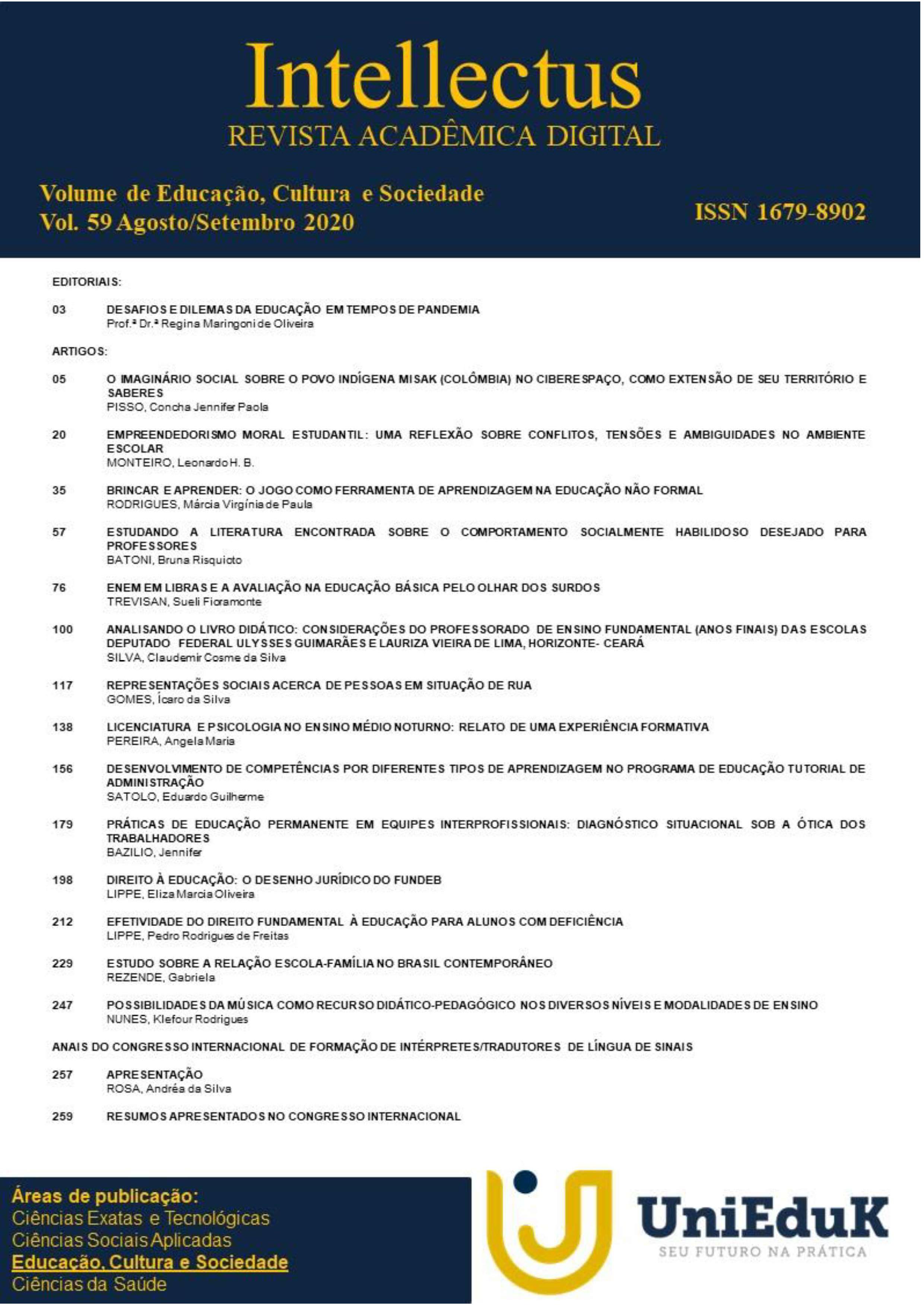Enem Exam Applied In Brazilian Sign Language And The Basic Education Evaluation Through The Point Of View Of The Deaf Communitty
Keywords:
Enem, Sign language, Textual genreAbstract
The National High School Exam (Enem) is the most expressive evaluation in Brazil. It stands as a gateway to various courses and universities in our country. As of 2017, this exam had the translation of the test, which is in Portuguese, into the Brazilian Sign Language (Libras), serving as an accessibility resource to meet the linguistic rights of deaf signers. In this article, we want to address issues related to Enem and its linguistic accessibility for the deaf through the results of a job search at the Bachelor's Degree in Translation and Interpretation in Libras and Portuguese Language (TILSP), held at the Federal University of São Paulo. Carlos (UFSCar). The work analyzed, through the speech of deaf participants, whether the new proposal from Enem was sufficient to ensure equal conditions for them to enter higher education. In the survey, the data pointed to the absence of educational practices contemplating assessments in Libras in basic education, which prevented the success of the Enem. For the analyzes we used the theories of Bakhtin, Vygotsky and authors of Deaf Studies. It was an exploratory and descriptive qualitative research with a case study, with semi-structured interviews. Although the deaf participants indicated difficulties in taking the test and lack of conceptual repertoire for taking it, they also demonstrate the satisfaction of having the exam translated into their language. The reports of difficulties in basic education and the lack of evidence in Libras were highlights of the obstacles to its success at Enem. The research pointed out the need to review the educational bases for an effective educational inclusion of deaf people, expanding their enunciative practices and experiences in Libras. The curricular change with bilingual practices will produce an effective insertion of the deaf in higher education and consequently the linguistic accessibility they desire.



